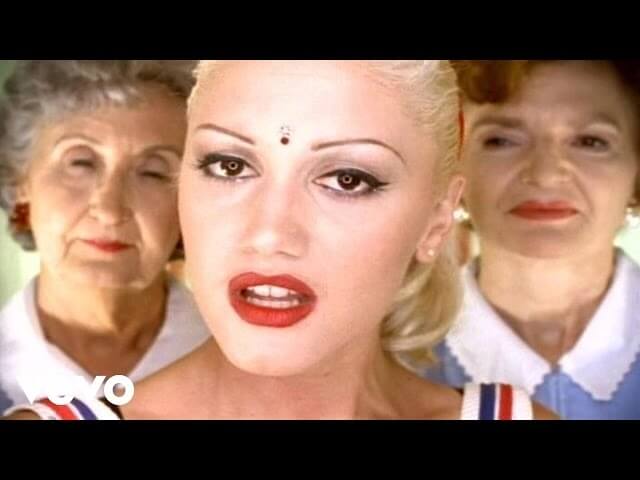With Tragic Kingdom, No Doubt gave ska a chance

In We’re No. 1, The A.V. Club examines an album that went to No. 1 on the Billboard charts to get to the heart of what it means to be popular in pop music, and how that concept has changed over the years. In this installment, we cover No Doubt’s Tragic Kingdom, which went to No. 1 December 21, 1996, where it stayed for eight weeks. It retook the No. 1 spot for one week on February 22, 1997.
If at first you don’t ska-ceed, ska, ska again. That’s long been the mantra of ska purists—those bands unwilling to lose their punny names and awful checkerboard wardrobes—and had No Doubt stuck to such a policy, the world beyond Southern California might never have met Gwen Stefani. Worse still, ska likely wouldn’t have enjoyed its mid- to late-’90s mainstream moment, and there almost certainly wouldn’t be a Reel Big Fish T-shirt stashed in the back of thousands of closets across the nation.
Thankfully, No Doubt wasn’t the typical ska group, and on its career-making third album, 1995’s Tragic Kingdom, the band tamped down the horns and hiccupping guitars of its previous records just enough to crack the mainstream. Like the group’s idol, English ska band Madness, had done in the early ’80s, No Doubt gave the American listening public just as much ska as it could stomach—not a whole lot, it turns out—through a combination of forethought and happenstance.
When No Doubt began work on Tragic Kingdom—a slow climber that topped the Billboard 200 in December 1996, 14 months after its release—few would have tapped the Orange County crew for superstardom. They’d been on the scene since the late ’80s, and while the band’s first two albums had made it a regional favorite and earned the group a deal with Interscope, No Doubt was having the same trouble crossing over that countless ska bands had before.
History’s dearth of ska superstars is no accident. Born in Jamaica in the late ’50s, ska flips traditional R&B to emphasize the upbeat, and it was divisively peppy long before Southern California kids got their hands on it. Its popularity in the Caribbean was short-lived—it morphed into rocksteady, which in turn became reggae—but it surfaced again in late-’70s Britain, where white punks and the disenfranchised children of West Indian immigrants bonded over its kinetic rhythms and political lyrics. The result was 2 Tone, a record label and movement whose flagship acts—The Specials, The English Beat, and Madness—managed only tiny dents into the U.S. market. Their records somehow landed in the Stefani household, however, where a young Gwen and her musically gifted brother Eric fell in love with the stuff.
By all accounts, Eric was the architect of No Doubt’s sound, but by 1994, late in the grueling Tragic Kingdom sessions, the keyboardist and songwriter had grown fed up. Interscope had already rejected one batch of tunes—later to surface as the self-released Beacon Street Collection—and what’s more, the label had enlisted Matthew “Break My Stride” Wilder to produce. Rather than relinquish creative control, Eric left to become an animator on The Simpsons, and with the record not yet finished, songwriting duties fell for the first time to other members. The shift came at just the right time, and with what must have been Interscope’s blessing, bassist Tony Kanal and guitarist Tom Dumont were free to play up the funk (“You Can Do It”) and rock (“Excuse Me Mr.,” “Hey You!”) influences that had always informed No Doubt’s music. More importantly, Gwen began penning her own lyrics, and given that she and Kanal had just broken up after seven years together, she had plenty to get off her chest.
As crucial as it was for No Doubt to scale back the ska, it was Gwen’s look and personality that pushed Tragic Kingdom over the edge. Hella angsty yet still mindful of her abs, Stefani was the punky chick on the JV cheerleading squad, Alanis Morissette for Hot Topic shoppers. With her belly shirts and bindi, she was sporty, sexy, sort of dorky, and completely unlike any female rocker of the post-grunge era. On lead single “Just A Girl,” she pulls off poutiness in all senses of the word.
 Keep scrolling for more great stories.
Keep scrolling for more great stories.
